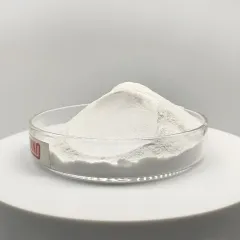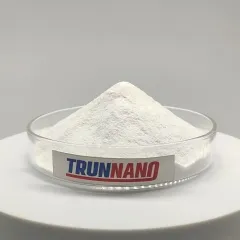Sodium Silicate: The Versatile Inorganic Compound Powering Industries from Construction to Sustainability sodium silicate solution water glass
- by admin

Introduction to Salt Silicate: A Time-Tested Product with Broadening Industrial Importance
Salt silicate, commonly called water glass or soluble glass, is an inorganic compound composed of salt oxide (Na â‚‚ O) and silicon dioxide (SiO TWO) in varying ratios. With a history dating back over 2 centuries, it continues to be one of one of the most widely used silicate compounds because of its special combination of sticky residential or commercial properties, thermal resistance, chemical security, and ecological compatibility. As markets look for even more lasting and multifunctional materials, salt silicate is experiencing restored interest across construction, cleaning agents, factory work, soil stabilization, and also carbon capture technologies.
(Sodium Silicate Powder)
Chemical Structure and Physical Properties
Salt silicates are offered in both strong and liquid kinds, with the basic formula Na â‚‚ O · nSiO â‚‚, where “n” denotes the molar proportion of SiO two to Na two O, frequently described as the “modulus.” This modulus significantly influences the substance’s solubility, viscosity, and sensitivity. Greater modulus worths represent boosted silica web content, bring about greater firmness and chemical resistance but lower solubility. Sodium silicate options show gel-forming actions under acidic problems, making them perfect for applications calling for controlled setting or binding. Its non-flammable nature, high pH, and capability to create thick, protective movies additionally enhance its utility popular settings.
Role in Construction and Cementitious Products
In the building and construction sector, salt silicate is thoroughly used as a concrete hardener, dustproofer, and sealing agent. When put on concrete surface areas, it reacts with complimentary calcium hydroxide to form calcium silicate hydrate (CSH), which compresses the surface area, boosts abrasion resistance, and reduces permeability. It also serves as a reliable binder in geopolymer concrete, an encouraging choice to Rose city cement that substantially reduces carbon discharges. Furthermore, salt silicate-based grouts are used in below ground design for dirt stablizing and groundwater control, supplying cost-efficient remedies for framework strength.
Applications in Factory and Steel Casting
The factory industry counts heavily on salt silicate as a binder for sand molds and cores. Compared to standard organic binders, sodium silicate offers exceptional dimensional precision, low gas evolution, and ease of recovering sand after casting. CO two gassing or natural ester healing methods are commonly utilized to set the sodium silicate-bound molds, giving quick and reputable manufacturing cycles. Recent advancements focus on improving the collapsibility and reusability of these molds, lowering waste, and enhancing sustainability in metal casting procedures.
Usage in Cleaning Agents and Family Products
Historically, salt silicate was a key active ingredient in powdered laundry cleaning agents, working as a building contractor to soften water by withdrawing calcium and magnesium ions. Although its use has declined somewhat because of ecological concerns related to eutrophication, it still contributes in commercial and institutional cleaning formulations. In eco-friendly detergent development, researchers are exploring changed silicates that balance efficiency with biodegradability, lining up with global patterns toward greener consumer products.
Environmental and Agricultural Applications
Beyond commercial usages, salt silicate is obtaining traction in environmental protection and agriculture. In wastewater therapy, it aids eliminate heavy metals through rainfall and coagulation procedures. In farming, it acts as a dirt conditioner and plant nutrient, particularly for rice and sugarcane, where silica strengthens cell walls and boosts resistance to insects and illness. It is likewise being tested for usage in carbon mineralization tasks, where it can respond with carbon monoxide two to create stable carbonate minerals, adding to lasting carbon sequestration techniques.
Innovations and Emerging Technologies
(Sodium Silicate Powder)
Recent advancements in nanotechnology and products scientific research have actually opened up brand-new frontiers for salt silicate. Functionalized silicate nanoparticles are being created for medication delivery, catalysis, and clever coatings with responsive actions. Hybrid compounds integrating salt silicate with polymers or bio-based matrices are showing guarantee in fireproof materials and self-healing concrete. Researchers are also exploring its possibility in innovative battery electrolytes and as a forerunner for silica-based aerogels made use of in insulation and purification systems. These innovations highlight sodium silicate’s adaptability to modern technological demands.
Challenges and Future Directions
Despite its flexibility, sodium silicate faces challenges consisting of level of sensitivity to pH changes, limited shelf life in solution form, and troubles in accomplishing consistent performance throughout variable substratums. Efforts are underway to create supported formulations, boost compatibility with various other ingredients, and minimize taking care of complexities. From a sustainability perspective, there is growing emphasis on reusing silicate-rich industrial byproducts such as fly ash and slag into value-added products, promoting circular economic climate principles. Looking in advance, salt silicate is poised to stay a fundamental material– connecting conventional applications with sophisticated technologies in energy, environment, and progressed production.
Distributor
TRUNNANO is a supplier of boron nitride with over 12 years of experience in nano-building energy conservation and nanotechnology development. It accepts payment via Credit Card, T/T, West Union and Paypal. Trunnano will ship the goods to customers overseas through FedEx, DHL, by air, or by sea. If you want to know more about Sodium Silicate, please feel free to contact us and send an inquiry(sales5@nanotrun.com).
Tags: Sodium Silicate Powder,Sodium Silicate Powder
All articles and pictures are from the Internet. If there are any copyright issues, please contact us in time to delete.
Inquiry us
Introduction to Salt Silicate: A Time-Tested Product with Broadening Industrial Importance Salt silicate, commonly called water glass or soluble glass, is an inorganic compound composed of salt oxide (Na â‚‚ O) and silicon dioxide (SiO TWO) in varying ratios. With a history dating back over 2 centuries, it continues to be one of one of…
- X Platform Adds Integration with Bank Apps
- Ultrafine Zinc Stearate Emulsion: Colloidal Lubrication and Release at the Nanoscale stearic acid odor
- Twitter Updates Its Privacy Policy
- Boron Powders and Amorphous Boron: High-Energy Materials with Diverse Technological Applications hexagonal boron nitride
- The Ultimate Guide to Oil Immersed Transformers: Powering Modern Grids with Reliability and Efficiency distribution transformer components
å½’æ¡£
- December 2025
- November 2025
- October 2025
- September 2025
- August 2025
- July 2025
- June 2025
- May 2025
- April 2025
- March 2025
- February 2025
- January 2025
- December 2024
- November 2024
- October 2024
- September 2024
- August 2024
- July 2024
- June 2024
- May 2024
- April 2024
- March 2024
- February 2024
- January 2024
- November 2023
